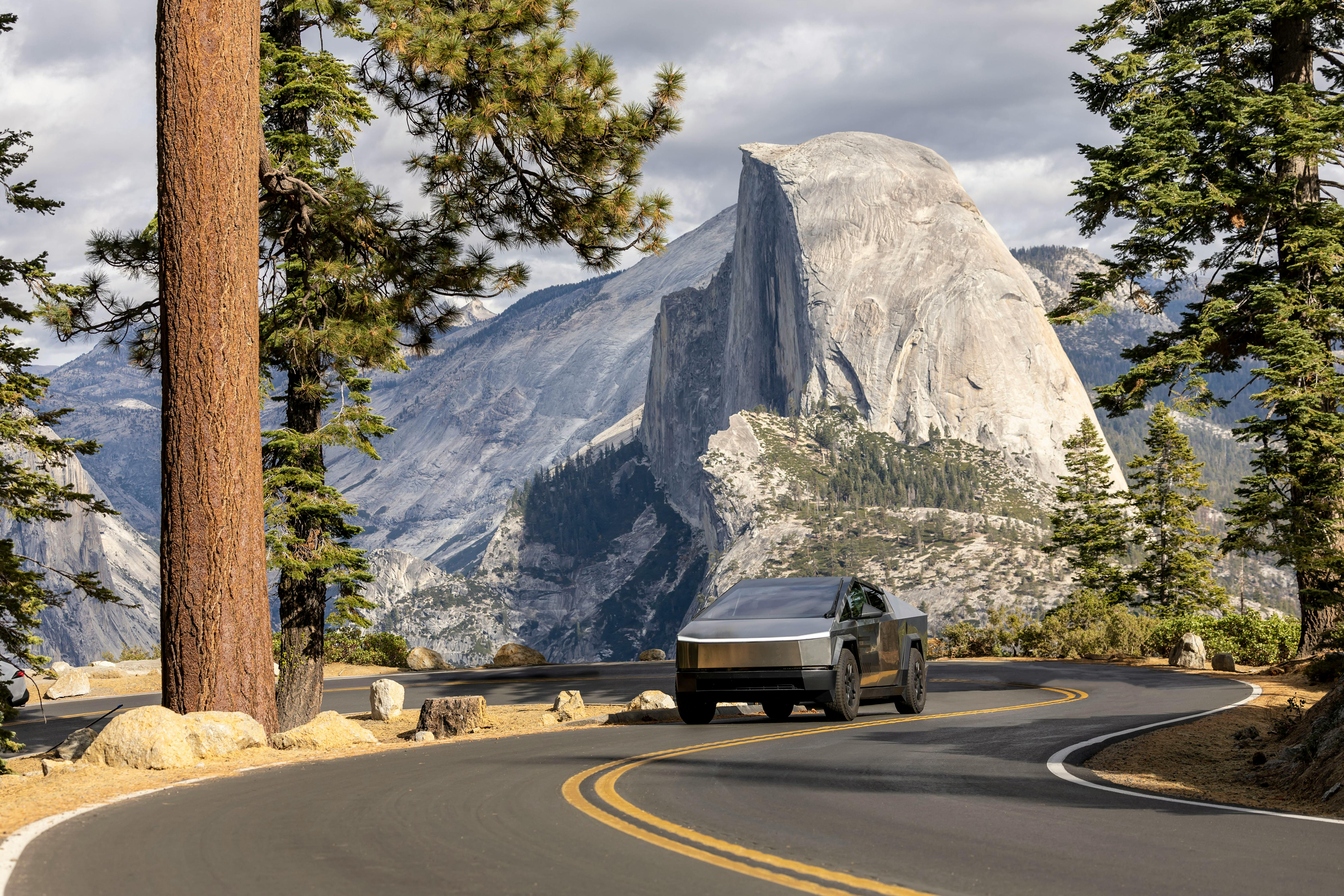Looking to escape the hustle and bustle of city life and immerse yourself in the great outdoors? Look no further than New Jersey, also known as the Garden State, which boasts some of the best campgrounds in the region. Whether you’re an experienced camper or a newbie looking to embark on your first adventure, there are plenty of options to suit every preference.
Each camping site offers its unique charm, from scenic lakeside spots to wooded areas teeming with wildlife. In this article, I will overview the state’s top camping destinations and briefly describe each site, including its location, amenities, and unique features. I will also share some valuable tips for camping in New Jersey, including the best time of year to visit and what essentials to pack. So grab your tent and get ready to discover the beauty of the Garden State’s best campgrounds!

This image is property of images.pexels.com.
Overview of New Jersey’s Top Camping Destinations
New Jersey may be small, but it is packed with beautiful outdoor destinations perfect for camping enthusiasts. Whether you prefer a scenic beachfront camping experience or a serene forest retreat, you can find it all in the Garden State. From Cape May to Stokes State Forest, New Jersey offers a variety of top-notch campgrounds that cater to various interests and preferences. In this article, I will provide an overview of some of New Jersey’s top camping destinations, highlighting their locations, amenities, unique features, and historical and cultural significance. So, let’s pack our tents and explore these fantastic camping sites!
Cape May
Location and Amenities
Located at the southernmost tip of New Jersey, Cape May offers a picturesque camping experience with its stunning coastline and charming Victorian architecture. The Cape May campgrounds are conveniently situated near the beaches, making it easy to enjoy a refreshing swim or a peaceful walk along the shore. The campgrounds provide spacious campsites equipped with picnic tables, fire rings, and access to clean restroom facilities. Some campgrounds also offer amenities such as swimming pools, playgrounds, and on-site convenience stores for added convenience.
Unique Features
One of the unique features of Cape May is its abundance of bird species. Birdwatchers flock to this area to glimpse the migratory birds that pass through during the spring and fall seasons. Cape May also boasts a vibrant arts and culture scene, with various festivals and events throughout the year. Visitors can explore the town’s historic sites, browse local art galleries, or indulge in delicious seafood at one of the many renowned restaurants.
Historical and Cultural Significance
Cape May holds significant historical and cultural importance in New Jersey. The town is known for its well-preserved collection of Victorian houses, a testament to its rich architectural heritage. Cape May is recognized as a National Historic Landmark, with over 600 Victorian buildings listed on the National Register of Historic Places. Visitors can embark on guided tours to learn about the town’s history and role as a prominent vacation destination during the 19th century.

This image is a property of images.pexels.com.
High Point State Park
Location and Amenities
If you want to immerse yourself in nature and enjoy breathtaking panoramic views, High Point State Park is the place to be. Situated in the northwest corner of New Jersey, this park offers a tranquil camping experience, surrounded by lush forests and rolling hills. The campgrounds provide well-maintained facilities, including spacious campsites, clean restrooms, and picnic areas. Rental cabins are also available for those who prefer a more comfortable camping experience.
Unique Features
One of the unique features of High Point State Park is its namesake, the High Point Monument. This impressive structure stands atop the state’s highest elevation, offering visitors a stunning 360-degree view of the surrounding landscapes. The park also features numerous hiking trails, allowing campers to explore the area’s beauty on foot. During the winter, the park becomes a haven for cross-country skiers, adding to its allure as a year-round destination.
Historical and Cultural Significance
High Point State Park is not only a natural wonder but also a site of historical significance. The High Point Monument was constructed in the 1930s to commemorate war veterans, symbolizing the state’s commitment to peace. The park’s history dates back even further, with evidence of Native American presence in the form of archaeological sites. By visiting High Point State Park, campers can connect with the natural and cultural heritage of New Jersey.
Delaware Water Gap National Recreation Area
Location and Amenities
Stretching along the border of New Jersey and Pennsylvania, the Delaware Water Gap National Recreation Area offers a diverse range of camping experiences. With over 70,000 acres of forested hills, river valleys, and historic sites, this area is a paradise for outdoor enthusiasts. The campgrounds within the recreation area provide various amenities, including designated campsites, picnic areas, and clean restroom facilities. Some campgrounds even offer swimming beaches, boat launches, and fishing spots.
Unique Features
One of the unique features of the Delaware Water Gap National Recreation Area is the Delaware River itself. The river provides ample opportunities for water-based activities such as canoeing, kayaking, and rafting. Campers can also explore the numerous hiking trails that wind through the area, offering breathtaking views of waterfalls, dense forests, and scenic overlooks. Wildlife enthusiasts will have the chance to spot bald eagles, black bears, and other native species that call this area home.
Historical and Cultural Significance
The Delaware Water Gap National Recreation Area holds significant historical and cultural importance. The area was once inhabited by the Lenape Native American tribes, who left traces of their existence in stone tools and pottery fragments. The recreation area is also home to historic sites such as the Van Campen Inn and the Dingmans Falls Visitor Center, which provide insight into the region’s past. By camping in this area, visitors can connect with nature and gain a deeper understanding of the cultural heritage that shaped the land.

This image is a property of images.pexels.com.
Belleplain State Forest
Location and Amenities
Nestled in the heart of southern New Jersey, Belleplain State Forest offers a serene camping experience surrounded by acres of dense pine forests and peaceful lakes. The campgrounds within the state forest provide basic amenities such as designated campsites, picnic areas, and restrooms with showers. Campers can choose between tent sites and RV sites with electric hookups, catering to various camping preferences.
Unique Features
One of the unique features of Belleplain State Forest is Lake Nummy, a pristine freshwater lake that offers swimming, boating, and fishing opportunities to visitors. The forest is also crisscrossed with scenic hiking and biking trails, allowing campers to explore its natural beauty. Belleplain State Forest is known for its peaceful atmosphere, making it an ideal destination for those seeking a tranquil and secluded camping experience.
Historical and Cultural Significance
Belleplain State Forest has a rich history dating back to the early 20th century, when it was established as a reforestation project. The forest was crucial in replenishing the region’s timber supply, which had been depleted by extensive logging. The remnants of old sawmills and charcoal kilns can still be found within the forest, reminding them of its historical significance. By camping in Belleplain State Forest, visitors can appreciate the forest’s legacy and contribute to its conservation efforts.
Wharton State Forest
Location and Amenities
Encompassing over 122,000 acres, Wharton State Forest is the largest state forest in New Jersey and offers a diverse range of camping experiences. Located in the heart of the Pine Barrens, this forest boasts an otherworldly landscape characterized by vast pine forests, serene streams, and eerie cranberry bogs. The campgrounds within Wharton State Forest provide basic amenities such as designated campsites, picnic areas, and vault toilets. Some campgrounds also offer amenities such as fire rings, playgrounds, and interpretive programs.
Unique Features
One of the unique features of Wharton State Forest is the Mullica River, which winds its way through the forest and offers excellent opportunities for canoeing and kayaking. The forest is also home to the historic Batsto Village, a well-preserved 18th-century ironworks community that provides a glimpse into the region’s industrial past. Campers can explore the village’s historic buildings, experience blacksmithing demonstrations, or enjoy a peaceful stroll along the village’s tree-lined streets.
Historical and Cultural Significance
Wharton State Forest has a rich cultural and historical heritage tied to the region’s industrial history. Batsto Village, located within the forest, was once a thriving ironmaking community and played a significant role in the American Revolution. The forest itself served as a supplier of raw materials for the ironworks, with extensive logging and bog iron extraction activities taking place. By camping in Wharton State Forest, visitors can gain insight into the region’s industrial past and appreciate the natural beauty that has emerged from its restoration efforts.
Jenny Jump State Forest
Location and Amenities
Nestled in the scenic hills of Warren County, Jenny Jump State Forest offers a tranquil camping experience surrounded by nature’s beauty. The campgrounds within the state forest provide essential amenities, including designated campsites, picnic areas, and restroom facilities. Depending on their preferences and needs, campers can choose between tent sites and group campsites.
Unique Features
One of the unique features of Jenny Jump State Forest is its namesake, Jenny Jump Mountain. This mountain offers stunning views of the surrounding landscapes and is a popular spot for hiking and birdwatching. The state forest is also known for its pristine trout streams, which attract fishing enthusiasts. Jenny Jump State Forest is a haven for stargazers, thanks to its dark skies and lack of light pollution, making it perfect for nighttime astronomy sessions.
Historical and Cultural Significance
Jenny Jump State Forest holds historical and cultural significance tied to local legends and folklore. Legend has it that Jenny Jump, a young girl of Native American descent, leaped off the mountain to escape capture by raiding Native American tribes. The forest has been named in her honor and has become a place of myth and intrigue. By camping in Jenny Jump State Forest, visitors can immerse themselves in the area’s natural beauty while exploring the stories and legends surrounding it.
Bass River State Forest
Location and Amenities
In Burlington County, Bass River State Forest offers a peaceful camping experience, surrounded by forested trails and serene lakes. The campgrounds within the state forest provide essential amenities, including designated campsites, picnic areas, and restroom facilities. Both tent sites and RV sites are available, catering to various camping preferences.
Unique Features
One of the unique features of Bass River State Forest is Lake Absegami, a scenic freshwater lake that offers campers swimming, boating, and fishing opportunities. The forest is also home to numerous hiking and biking trails, allowing visitors to explore its natural beauty. Bass River State Forest is renowned for its abundance of wildlife, with deer, foxes, and various bird species often spotted by lucky campers.
Historical and Cultural Significance
Bass River State Forest holds historical and cultural significance in the region’s logging and farming history. The area was heavily logged during the 19th and early 20th centuries, with sawmills and charcoal kilns dotting the landscape. The forest’s extensive trails were once used for transporting timber and agricultural products. By camping in Bass River State Forest, visitors can appreciate the legacy of the region’s logging and agricultural past while enjoying its peaceful natural surroundings.
Cheesequake State Park
Location and Amenities
Located in Middlesex County, Cheesequake State Park offers a unique camping experience with its combination of beautiful forests, marshes, and coastal wetlands. The park’s campgrounds provide basic amenities, including designated campsites, picnic areas, and restroom facilities. Campers can choose between tent and RV sites with electric hookups, catering to different camping preferences.
Unique Features
One of the unique features of Cheesequake State Park is its diverse ecosystems. The park is home to a rare combination of hardwood forests, pine forests, and tidal marshes, creating a haven for wildlife. Visitors can explore the park’s nature trails, which wind through its various habitats and offer birdwatching and wildlife spotting opportunities. Cheesequake State Park also offers beach access, allowing campers to enjoy a refreshing swim or a relaxing day by the shore.
Historical and Cultural Significance
Cheesequake State Park holds historical and cultural significance tied to the region’s Native American heritage. The park’s name, “Cheesequake,” is derived from the Lenape word for “upland,” referring to the hilly terrain that characterizes the area. Archaeological evidence suggests that the Lenape Native American tribes once inhabited the region, leaving traces of their presence behind. By camping in Cheesequake State Park, visitors can connect with the land’s rich cultural heritage while enjoying the beauty of its natural surroundings.
Round Valley Recreation Area
Location and Amenities
Situated in Hunterdon County, the Round Valley Recreation Area offers a serene camping experience centered around the breathtaking Round Valley Reservoir. The recreation area’s campgrounds provide essential amenities, including designated campsites, picnic areas, and clean restroom facilities. Campers can choose between tent and RV sites, depending on their preferences and needs.
Unique Features
The defining feature of the Round Valley Recreation area is the Round Valley Reservoir, a sprawling freshwater lake that offers excellent opportunities for fishing, boating, and swimming. The reservoir is famous for its population of landlocked salmon, making it a popular spot for anglers. Campers can also explore the various hiking trails surrounding the reservoir, offering panoramic views of the water and the surrounding landscapes.
Historical and Cultural Significance
The Round Valley Recreation Area holds historical and cultural significance tied to the creation of the Round Valley Reservoir in the 1970s. The reservoir was constructed as part of a water supply project, providing drinking water to the surrounding region. The reservoir’s creation required the relocation of several communities, leaving behind a legacy of human displacement and environmental transformation. By camping in the Round Valley Recreation Area, visitors can appreciate the man-made beauty of the reservoir while reflecting on its historical and cultural implications.
Stokes State Forest
Location and Amenities
Nestled in the Kittatinny Mountains of Sussex County, Stokes State Forest offers a peaceful and secluded camping experience surrounded by scenic beauty. The forest’s campgrounds provide basic amenities, including designated campsites, picnic areas, and vault toilets. Campers can choose between tent and RV sites with electric hookups, catering to different camping preferences.
Unique Features
One of the unique features of Stokes State Forest is its accessibility to the Appalachian Trail, one of the most famous long-distance hiking trails in the world. Campers can hike a section of the trail, immersing themselves in the tranquility of nature and enjoying panoramic views of the surrounding mountains. The forest is also home to several picturesque lakes, including Lake Ocquittunk and Stony Lake, offering opportunities for fishing, boating, and swimming.
Historical and Cultural Significance
Stokes State Forest is historically and culturally tied to the region’s conservation efforts and outdoor recreation movement. The area was heavily logged in the early 20th century, leading to environmental degradation. However, in the 1930s, the Civilian Conservation Corps undertook reforestation and conservation initiatives, leading to Stokes State Forest’s establishment. By camping in Stokes State Forest, visitors can appreciate the conservation legacy of the region while enjoying its natural beauty.
Tips for Camping in New Jersey
Best time of year to visit
The best time to visit New Jersey for camping depends on your preferences and the activities you plan to engage in. Spring and fall generally offer mild temperatures and fewer crowds, making them ideal for hiking, birdwatching, and enjoying the changing colors of the foliage. Summer is the peak season for camping, especially near the shore, as it offers warm weather and access to beaches and water activities. Winter is also an option for camping, with some campgrounds open year-round and opportunities for winter sports such as cross-country skiing. Regardless of the season, checking weather forecasts and campground availability is always a good idea before planning your trip.
What to pack
When packing for a camping trip in New Jersey, it’s essential to be prepared for changing weather conditions and varying terrain. Here are some essential items to consider packing:
-
Tent and sleeping bags: Choose a tent suitable for the number of people in your group and ensure
it provides adequate protection against rain and insects. Don’t forget to pack comfortable sleeping bags andpads for a good night’s rest.
-
Clothing: Pack a variety of clothing layers to accommodate different weather conditions. Include lightweight and breathable options for hot summer days and warmer layers for cooler evenings and mornings. Don’t forget to bring rain gear and sturdy hiking shoes for outdoor activities.
-
Camping essentials: Pack a camping stove, cooking utensils, and food supplies for meals. Don’t forget to bring a cooler with ice packs to keep perishable items fresh. Other essential items include a flashlight or headlamp, a first aid kit, sunscreen, insect repellent, and toiletries.
-
Recreation gear: Depending on your planned activities, consider packing equipment such as fishing gear, hiking poles, binoculars, or water sports gear. Also, don’t forget to bring entertainment options for downtime, such as books, board games, or portable speakers.
-
Miscellaneous items: Bring a camping chair or hammock for relaxation, a portable charger for electronic devices, reusable water bottles, and trash bags to keep the camping area clean.
Remember to check the campground’s rules and regulations regarding campfires, pets, and any restrictions on certain items.
In conclusion, New Jersey offers various camping destinations that cater to various preferences and interests. From the coastal beauty of Cape May to the serene forests of Stokes State Forest, camping in the Garden State provides an opportunity to connect with nature, explore historical and cultural sites, and enjoy outdoor activities. By following these tips for camping in New Jersey, you can make the most of your camping experience and create lasting memories in this beautiful state. So, grab your camping gear, pack your bags, and embark on an adventure in New Jersey’s top camping destinations!

